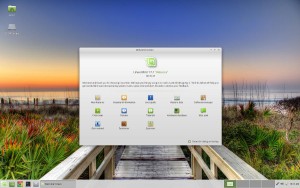Dammit, Clement Lefebvre, you and your team at Linux Mint have gone and done it. Y’all, and the folks at Xfce too. Why couldn’t you just leave well enough alone? I was perfectly fine and dandy with Maya and now you’ve gone and ruined it by coming out with something five times better. Thanks for ruining my Saturday. Thanks a lot.

Click image to enlarge.
When the folks at Mint released a new LTS Xfce version (Qiana) in June of last year, followed by another LTS (Rebecca) in January, we didn’t much care. We were more than happy with Maya, and following the age old philosophy of “if it ain’t broke, don’t fix it,” we decided to stay the course and keep using what we had until its sunset year arrived. As far as I was concerned, although approaching obsolescence, Maya was damned near perfect. How much better could the latest and greatest be?
However, you might notice that I write about Maya in the past tense. I confess. I killed her.
Christine Hall has been a journalist since 1971. In 2001, she began writing a weekly consumer computer column and started covering Linux and FOSS in 2002 after making the switch to GNU/Linux. Follow her on Twitter: @BrideOfLinux





 Maybe there’s another reason for downplaying this release.
Maybe there’s another reason for downplaying this release.
 Each day our news sites offer more evidence that this is happening. Collectively, we shrug and think there’s nothing to be done. This dragon is too huge to slay.
Each day our news sites offer more evidence that this is happening. Collectively, we shrug and think there’s nothing to be done. This dragon is too huge to slay.




 Late last week, Rachel Roumeliotis reported in a
Late last week, Rachel Roumeliotis reported in a